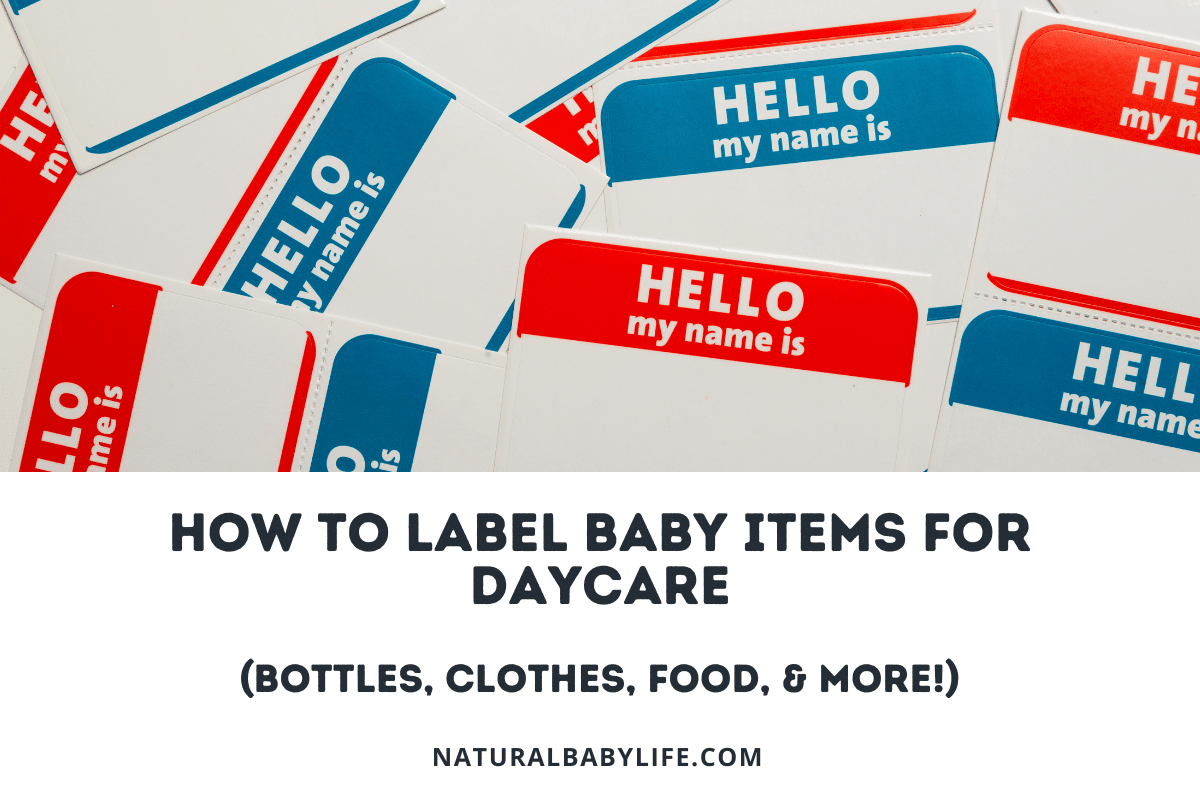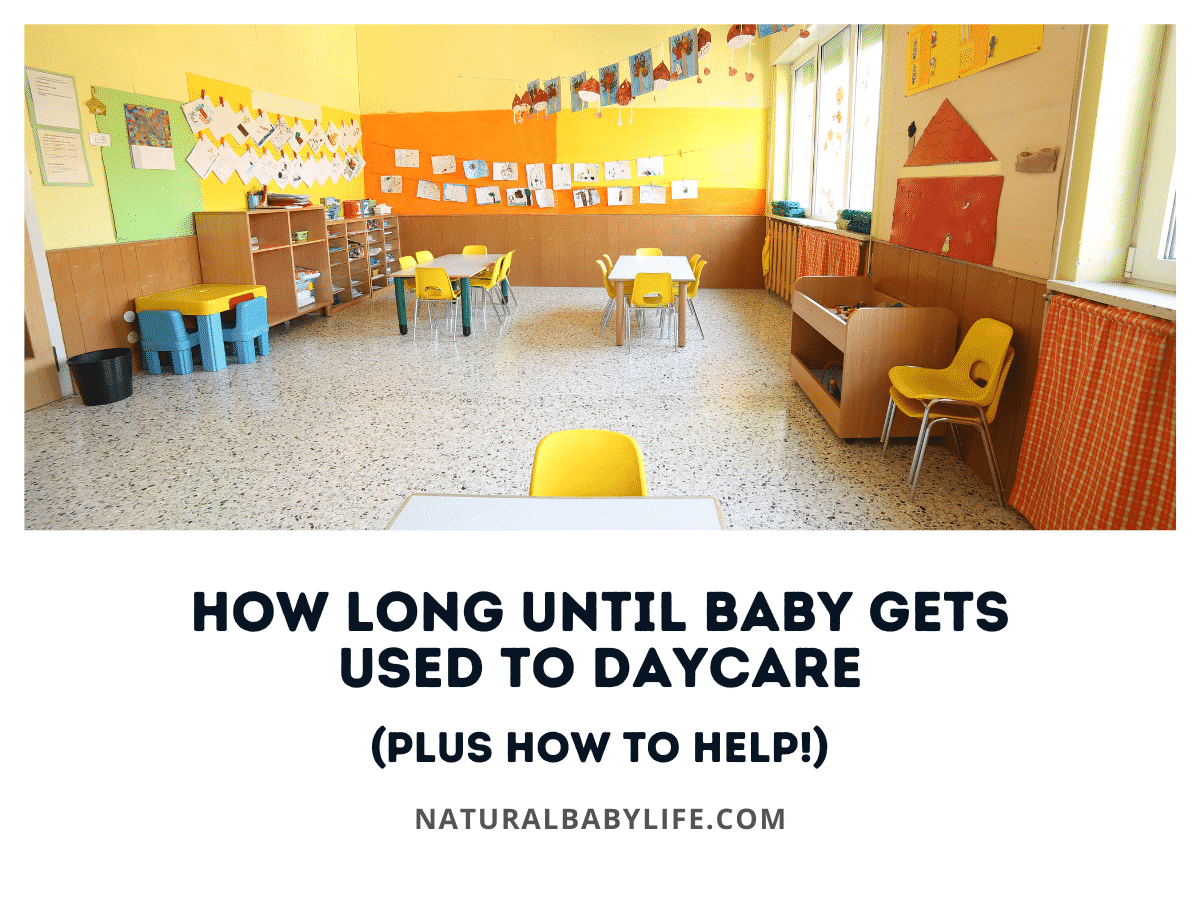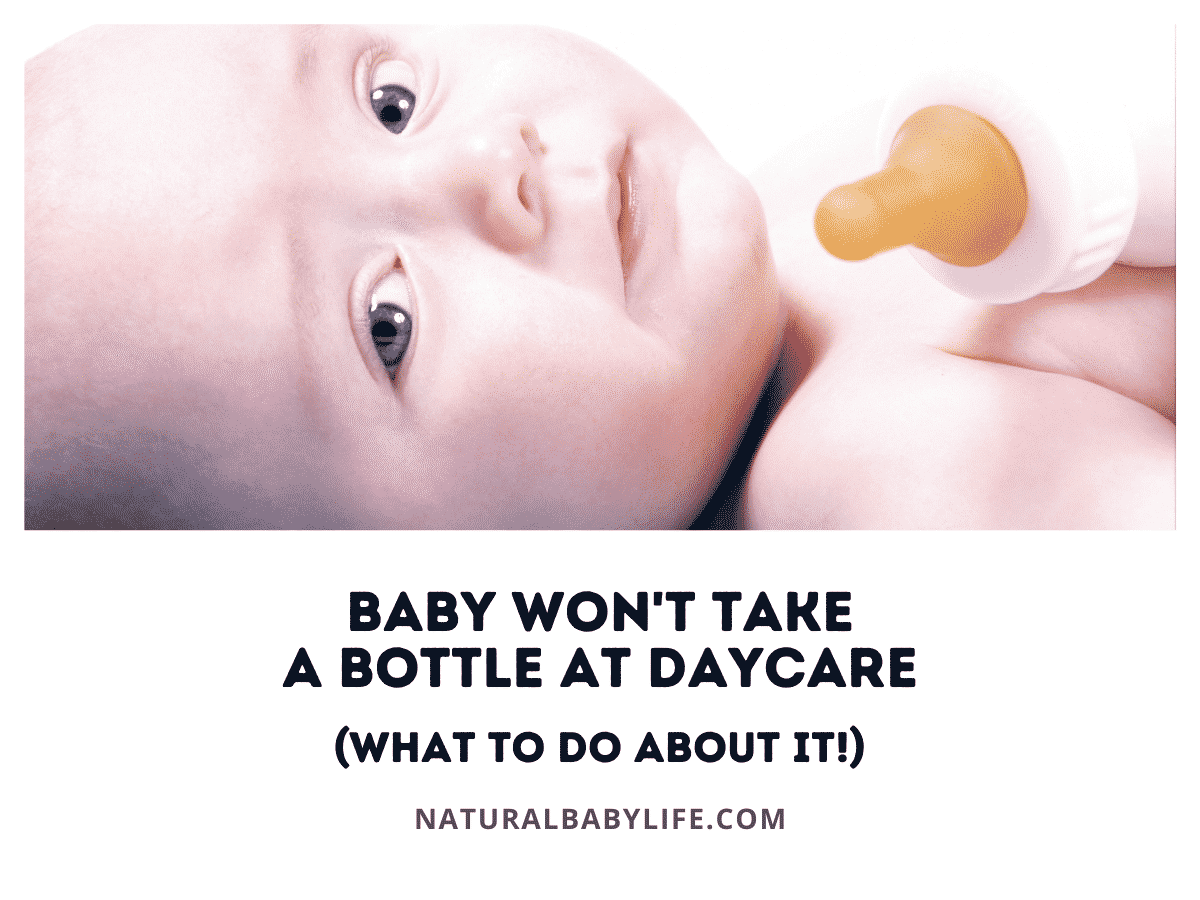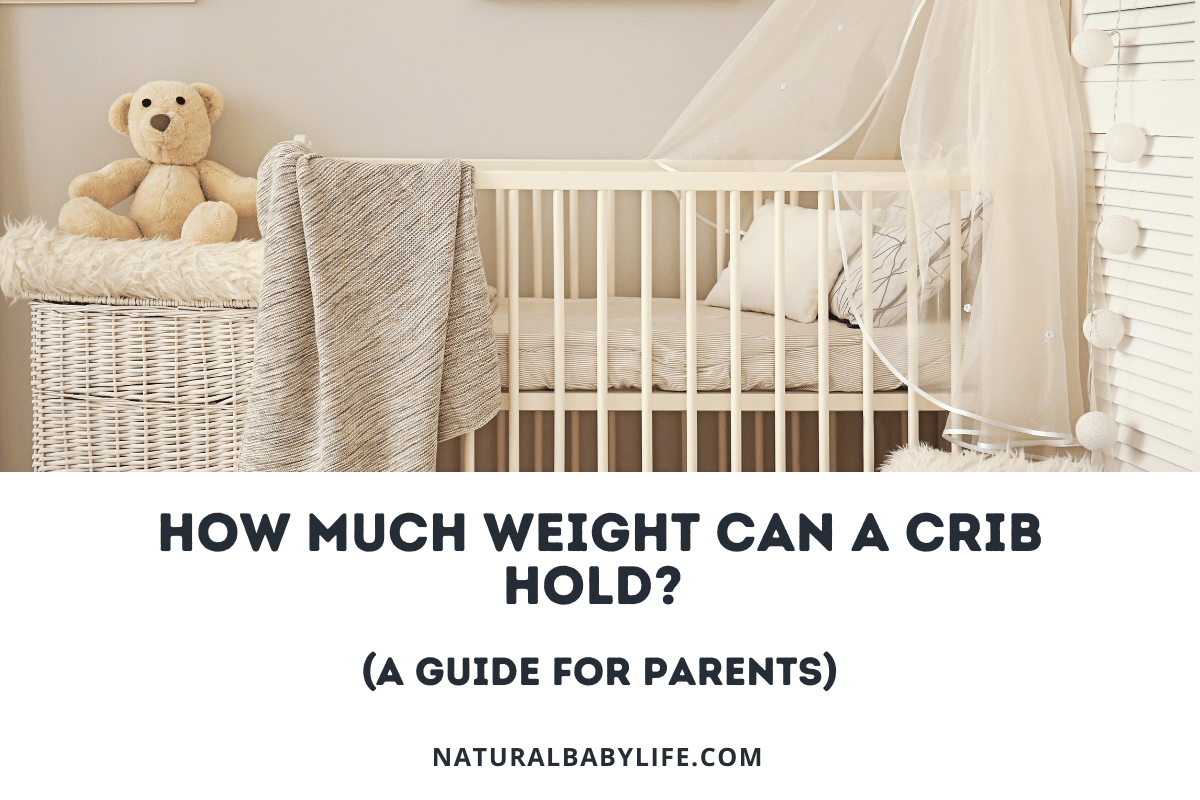It happens to every new mom: you’re awake at three in the morning, and the baby has been crying for what feels like hours. A crying baby often leads to stressed-out parents, especially during those middle-of-the-night feedings. But what do you do if your husband just can’t seem to handle it when the baby cries?
If your husband has a difficult time when your baby cries, think about how stressed your child’s crying makes you, and then remember that he has probably had less to time learn how to deal with it if you are at home with the child and he is working during the day. Empathizing with your partner can help both of you manage a crying baby with grace.
There are some individuals (both dads and moms) who have a particularly difficult time dealing with a crying baby. Keep reading for some tips that can help your partner become more comfortable around a crying child.
Table of Contents
Dad gets frustrated when baby cries
Although it can be concerning, it’s common for dads to become frustrated when their baby cries. And honestly, who can blame them? Listening to your child cry is one of the most heart-wrenching experiences in parenting. All you want to do is find a way to help your little one feel better and calm down.
For dads especially, a crying baby can seem overwhelming. Society still likes to tell men that when it comes to parenting, they’re second-string. Growing up, it’s the girls that usually take babysitting jobs and practice changing diapers on their dolls. That means that for dads, there’s a steep learning curve that comes when you have a new baby. But just because your husband might feel overwhelmed or frustrated when the baby cries, it doesn’t mean that he’s a bad parent.
If your husband gets frustrated when the baby cries, try cutting him some slack. You’re both learning the ins and outs of being a parent, and that can manifest in different ways. Men in particular often feel a responsibility to fix things, which doesn’t exactly work when it comes to babies. As illogical as it may seem, sometimes babies just cry, and there’s nothing you can do to help them stop.
It’s also important to remember that if you’re the stay-at-home parent, you’re going to learn how to comfort your crying baby much faster than your partner who has returned to work. Spending time with your child is the best way to get to know what comforts them, and dads are often shortchanged on the time they get to spend with their children because of the pressures of work. Try sharing the childcare tips and tricks you’ve learned with your husband, and make sure you let him spend plenty of time with the baby after he’s gotten home from work.
No matter how frustrated you or your partner become, it’s important to never shake a baby to get them to stop crying. If you need some time to cool off and relax, it’s fine to place your baby in a safe space, such as their crib, and walk away for a few minutes. You can also ask for help from friends or family to give you or your husband time to unwind from the pressures of new parenthood. If your partner is ever physically abusive to you or your new baby, it’s crucial you seek help from a domestic abuse hotline or another similar resource.
Husband has no patience with baby
Dads have a lot going on, so it’s normal for them to lose patience with a new baby; after all, babies aren’t exactly convenient! Newborns come with some major lifestyle changes, not to mention a host of new safety precautions, expenses, and things to worry about. For a strong, independent person, it can be hard to sacrifice so much, even for the baby they love with all their heart.
If your husband is losing patience with the baby, it can manifest in several different forms. He may appear frustrated, have a short fuse with other family members, or try to hand you the baby the minute he or she begins to fuss. If you notice this happening, try talking with your husband about the patterns you’ve seen.
He may not even realize that the baby has been getting on his nerves! You can also give your husband positive time to bond with the baby when your little one isn’t fussing or crying. The more quality time parents spend with their children, the easier it becomes to deal with the difficult moments.
Why do dads get frustrated with crying babies faster than moms?
It’s a stereotype that dads get frustrated with crying babies faster than moms.
Although it’s certainly not true in every case, you might notice that in your household, your husband gets frustrated with the crying baby pretty quickly. Even if that happens to be the case in your relationship, it doesn’t mean that your husband isn’t a good dad.
Just like moms, dads have plenty of reasons to be frustrated by a crying baby. Stress, uncertainty, sleep deprivation, and lack of practice can all contribute to a dad’s frustration.
Dad’s stressed out too
Having a baby is stressful! And it’s not just moms that get stressed; new dads are going through massive lifestyle changes as well.
New baby stressors can pile on top of everyday stress from work, relationships, and chores, and leave dads feeling completely exhausted physically and emotionally. To combat stress, try to make time for self-care, and prioritize your romantic relationship as much as possible.
If your husband has a hobby that helps him destress, it can be helpful to give him some time and space to enjoy himself and relax a bit.
Dads are better at prevention than comforting
Moms and dads tend to parent differently. Recent studies have found that dads tend to try and prevent problems before they start, while moms are generally more adept at comforting kids after a problem has occurred.
While this certainly isn’t true for every family, dads who try to prevent problems with their children are always going to be fighting a losing battle. Even happy babies cry, which can be a source of frustration for the dads who were trying to prevent the crying in the first place.
Baby wants mom instead of dad
As frustrating as it can be, sometimes babies just want mom.
It’s never nice to feel unwanted, and a picky baby can leave some dads feeling frustrated and helpless. Even though mom might be the favorite now, it’s important to realize that babies are capricious: in a few months, dad might be the new star of the show.
In the meantime, dad should still spend quality time with the baby where possible. Familiarity and positive experiences will go a long way toward helping foster connectivity.
Breastfeeding moms have an unfair advantage
If mom is breastfeeding, it can be especially hard for dad to come in and soothe a baby who wants the comfort of milk and snuggles.
If a baby is tired or frustrated, nursing can be a quick and easy way to calm and comfort him, but it’s a comfort dad can’t provide.
Sometimes children, especially ones who are exclusively breastfed may even expect the one thing dad can’t give and become even more distressed when they think they’re being denied.
Dad doesn’t know what to do
Even the best parents sometimes find themselves not knowing what to do when the baby is crying.
Uncertainty and indecision can be extremely frustrating, and working dads may have an even steeper learning curve than stay-at-home parents. As frustrating as it might be to not know exactly what to do when your baby is crying, the best solution is just practice.
The more time you spend comforting your baby, the quicker you’ll pick up on what works best to calm them.
Baby gets overwhelmed when dad gets home
Dad walks through the door after work, and the baby immediately begins to wail. Although it may feel personal, it’s probably just bad timing.
Babies are more likely to cry in the evening, which usually coincides with dad getting home from work. Even though it can be frustrating for a dad to have the baby crying as soon as work ends, it’s important to realize that it’s due to causes outside of a parent’s control.
Can dads get Postpartum Depression?
Postpartum Depression can affect dads as well as new moms. In 2010, a statistical analysis found a huge spike in depression in dads 3 to 6 months after the birth of their baby.
If a new mom has postpartum depression, studies suggest that her husband has a 25 to 50 percent chance of experiencing depression as well. Unfortunately, the emphasis on treating postpartum depression has primarily focused on new mothers. Moms are screened for depression at pediatric appointments following the baby’s birth, while dads are usually back to work and often forgotten from a healthcare standpoint.
Just because dads aren’t screened for postpartum depression doesn’t mean that it’s less prevalent or less dangerous than it is for moms. Men also tend to be unwilling to admit they’re feeling overwhelmed or depressed, which means that their depression can go undiagnosed and untreated.
If you’re worried that your partner might be experiencing postpartum depression, here are a few signs to look out for:
- He seems weepy
- He may act lethargic or sleep longer than usual
- He may seem “flat” or uninterested in activities he usually enjoys
- He’s become extra quiet or withdrawn
- He doesn’t want to socialize or hang out with friends or family
Postpartum depression can also cause a person to try to “lose themselves” in work or hobbies as an escape mechanism from their daily distress. You may also notice that risk-taking behaviors such as gambling or drinking have increased.
Postpartum depression can last anywhere from a few weeks to over a year. If you notice you or your partner exhibiting PPD symptoms, speak with your doctor or a licensed therapist.
Paternal Perinatal Mood and Anxiety Disorders (PPMAD)
Paternal Perinatal Mood and Anxiety Disorders (PPMAD) is a group of mental health disorders that affect new dads.
The two most common disorders in the group are depression and anxiety, but PPMAD’s can also include Obsessive-Compulsive Disorder, PTSD, Bipolar disorders, or Psychosis. Although these disorders can occur at any point in life, the postpartum period can make their appearance far more likely for new fathers.
Some symptoms of PPMAD to look out for can include:
- Persistent sadness
- Anxiety
- Panic attacks
- Chronic fatigue
- Loss of interest in activities
- Feelings of hopelessness, helplessness, or guilt
- Problems with concentration
- Changes in sleeping and/or eating patterns
If you notice any of the above symptoms in you or your partner, it’s important to speak with a doctor about mental health treatment. Without treatment, PPMAD’s can last for over a year, while treatment can reduce symptoms within weeks.
Paternal Postnatal Depression (PPND)
PPND, or Paternal Postnatal Depression is one of the most common mood disorders among new fathers. It is diagnosed similar to any other depressive disorder.
Symptoms of PPND can include:
- Persistent sadness
- Chronic fatigue
- Loss of interest in activities
- Feelings of hopelessness or emptiness
- Problems with concentration
- Changes in sleeping and/or eating patterns
If you notice symptoms of PPND, it’s important to seek mental health treatment.
Helping dad be more patient with baby
Patience for anybody takes practice, especially when it comes to managing a new baby. Here are a few ways to help dad be more patient with baby:
Give him easy wins
If your husband is lacking confidence, it’s important he experiences some parenting ‘wins.’
If you know that your baby is extra happy first thing in the morning, let your husband take the morning shift of diaper changes and feedings while you tackle the more fitful evening.
As your husband becomes more confident, his patience will increase.
Share your tips and tricks
If your husband is open to the idea, give him a quick lesson in Baby 101. This can be especially useful if you’re a stay-at-home parent while your husband works.
You’ve probably picked up some tricks that make your baby extra happy, and rather than making dad learn things the hard way, tell him what you’ve already found out.
Don’t discount his opinions
It’s easy for moms to adopt the title of “All Knowing Baby Expert.”
But even if you’ve got a lot of experience taking care of your baby, that doesn’t mean that dad is completely clueless.
Don’t shoot down your husband’s suggestions about what your baby wants or needs; believe it or not, some of his ideas are actually going to work!
Let him feed the baby
If you’re using a bottle and formula, make sure that dad has plenty of opportunities to feed the baby.
This shows your little one (and your husband!) that dad is just as capable of providing food and comfort as you are. Even if you’re breastfeeding, consider pumping some milk and letting your husband feed it to your baby.
Not only will it be great for both dad and baby, but it might also offer you a bit of relief from the burden of breastfeeding.
Give him and the baby some space
Even though it might be tempting to hover over your husband to ensure he’s doing everything perfectly, it doesn’t show you trust him.
Try stepping back and letting your husband handle the baby for a few hours without jumping in to fix everything.
Schedule an evening out with friends, or go grocery shopping without having to lug the baby seat around with you.










